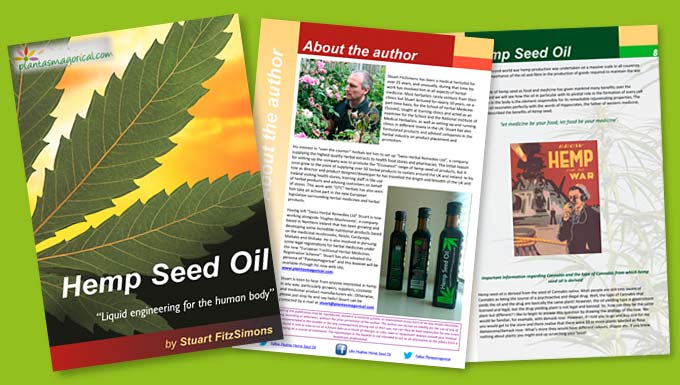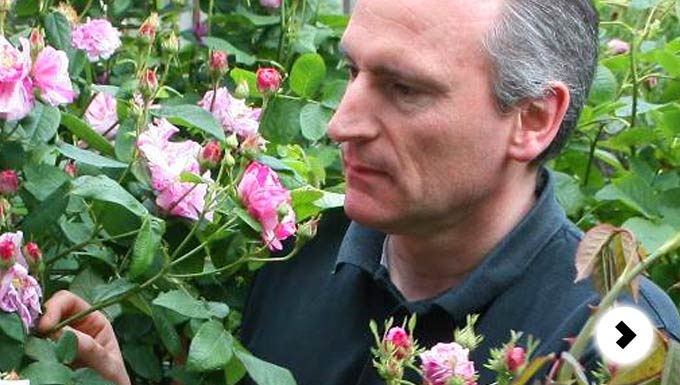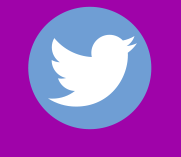HOME › SEXUAL DYSFUNCTION › HERBS THAT OPTIMISE TESTOSTERONE LEVELS
Herbs that optimise testosterone levels

When speaking of phyto-oestrogenic herbs we were mainly talking about women. In this section we will be talking mainly about men, but it's not all about men so be sure and read through to the end of this section if you are interested in how women can optimise testosterone.
How do herbs optimise testosterone levels?
Overall we would be looking at 3 different ways in which herbs can help to optimise testosterone levels:
1. Some herbs can directly influence testosterone output by the testicles in men, and this is because some herbs contain chemicals that stimulate the pituitary gland in the brain. This is the master gland of the human body, controlling all other glands such as ovaries and testicles.
Examples of the herbs in this category are:
Cowitch/Velvet bean (Mucuna pruriens)

Mucuna pruriens seed
This is a herb from the Ayurvedic system of medicine and has one of the longest records of use of any herb on Earth! It always had a reputation as a rejuvenating tonic and sexual stimulant and today we have chemical proof backing up its traditional use. We now know that Mucuna contains l-dopa which is the precursor for dopamine, a chemical that is called a neuro-transmitter as it is one of the chemicals our brains and nervous systems run on. Parkinson's disease happens in people who lose dopamine production. When l-dopa (which is basically an amino-acid) gets into our system it is transported to the brain and converted into dopamine. Remember, the pituitary gland, the master gland of the body, is part of the brain and dopamine has an effect on this gland as well as other areas in the brain and nervous system. In other words, by virtue of acting on the pituitary gland, this neuro-transmitter also affects the hormonal system. Basically, what happens is that when dopamine levels are high, the pituitary is stimulated to produce a hormone called LH )luteinising hormone(. In women this hormone is concerned with governing the menstrual cycle but in men it leads to stimulation of testosterone production by the testicles.
Another interesting aspect of raising dopamine levels is that it also helps to lower prolactin levels. Prolactin is another hormone produced by the pituitary gland (in both men and women), and as the name suggests, it functions in lactation, breast development and milk production. It has several other functions in the body but when levels are high, and this can occur in both sexes, then it has a negative impact on sex drive. Reducing prolactin levels therefore can be like raising the curtain on your sex-drive!
As if this was not useful enough already, high dopamine levels are also thought to influence growth hormone levels. As the name suggests growth hormone is important in helping the body recover and grow and it declines as we age. Growth hormone has a very definite pro-sexual effect for both sexes and is the number one anti-ageing hormone!
One of the important aspects in the use of Mucuna is that l-dopa is not absorbed that easily and you need to combine it with other herbs that contain chemicals that aid the absorption of the l-dopa. This is where our next herb comes in.
Puncture vine (Tribulus terrestris)
Yet another herb from classical Ayurveda and one that is invariably given with Mucuna. The precedent for this combination goes back beyond recorded history! Our ancestors knew how this combination worked thousands of years before we came along with science! Tribulus is interesting because it has become most well known nowadays for its steroidal saponin content. The saponins it contains have their own pro-sexual effect. However, I am more interested in the fact that Tribulus also contains traces of chemicals known as harmala alkaloids and it is these chemicals that aid the absorption of the l-dopa in Mucuna. These chemicals are known as mono-amine-oxidase inhibitors and basically stop the breakdown of amino acid type chemicals such as l-dopa and the dopamine made from it. So by itself, it can maintain dopamine levels. A spin-off of the dopamine elevating effect is that dopamine is one of the brain's happy chemicals and makes us feel strong and confident. This effect also makes Tribulus my number 1 anti-depressant. Putting this together we can see that there is a particularly useful place for these herbs in the treatment of low testosterone levels as can be found in older and ageing men, but it is also useful in women (and men) with high prolactin levels or both sexes when a powerful anti-depressant effect is required.

Some great photographs of Tribulus terrestris by Harry Rose. Note the spiky fruits which gives the plant its name 'Puncture Vine'.
2. Adrenal tonics. The main production sites for testosterone in women are the adrenal glands. Some herbs can maintain the health of these glands and are particularly important in this day and age when stress is a leading factor in illness. Stress can exhaust the adrenals and the link to sexual dysfunction here is quite obvious. The first herb we are going to talk about, Ashwagandha, links in historically with Mucuna and Tribulus as it is invariably combined with them in traditional formulas.
Ashwagandha (Withania somnifera)

Withania somnifera
Another of the oldest known and continuously used herbs. It has been shown by itself to improve sex-drive and sexual function in elderly men during trials and it also has a mild sedative effect which again may be useful in the treatment of sexual dysfunction. However, the main effect of Ashwagandha is the anti-stress/adrenal tonic effect (nowadays referred to as an adaptogenic effect). When we are stressed the adrenals produce cortisol and adrenaline, and in the short-term this is designed to help get the body away from stress. Nowadays though we live lives that cause a continuous release of stress hormones and this causes not just adrenal run-down, but the run-down of the rest of us too. So, by using Ashwagandha, a woman can preserve her main testosterone production centre but the use by both sexes of Ashwagandha as an anti-stress sedative have obvious potential benefits in the treatment of sexual dysfunction.
Other herbs that have a useful role in treating stress and preserving adrenal function are Rhodiola rosea (golden root), Eleuthrococcus sentiocosus (Siberian ginseng) and Panax ginseng (Korean ginseng).
3. Some herbs act as 'aromatase inhibitors' and are able to optimise free testosterone levels. We touched upon this in the phyto-oestrogen section as some of the phyto-oestrogens, particularly the isoflavones, have an anti-aromatase effect which means that they stop the breakdown of testosterone and keep it circulating for longer.
Most testosterone is not found floating freely in the blood-stream but bound to a transport molecule called sex-hormone-binding-globulin (SHBG). It is the free testosterone that is active. If we could actually occupy the SHBG with something else then we could free up more testosterone of course, and this is where the next herb comes in.
Oats (Avena sativa)

Avena sativa
Oats, as most of us will be aware are one of the staple foods of many nations, keeping the British going for centuries for example. Oats again are loaded with the saponins and other steroid shaped molecules that we have already spoken about. The trick to the effectiveness of these chemicals is that because they are so similar in size and shape to our own testosterone then SHBG is 'fooled' into picking some of them up instead of actual testosterone and therefore leaving more free and active testosterone circulating. Another herb that is used for this purpose is nettle root. Remember, that's nettle root, not the more commonly used nettle leaf. Nettle root also has the potentially useful effect of treating prostate enlargement.
Circulatory Herbs
Hemp Seed Oil
'Liquid Engineering for the Human Body'

READ ONLINE →
VISIT THE PAGE →
The information is made available with the understanding that the author and publisher are not providing medical, psychological, or nutritional counseling services on this site. The information should not be used in place of a consultation with a competent health care or nutrition professional.







